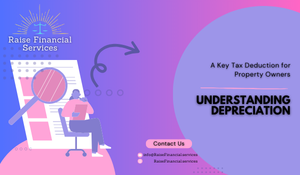Tax season can be a stressful time for individuals and small business owners alike. With the...
Understanding Tax Compliance: What Every Small Business Needs to Know
Navigating tax compliance is one of the most critical responsibilities for small business owners. Falling short of tax obligations can lead to costly penalties, damage to your business reputation, and added stress. By understanding the key aspects of tax compliance, you can ensure your business stays on the right side of the IRS while focusing on growth and success. Here’s what every small business needs to know about tax compliance.
1. Know Your Tax Obligations
Small businesses are subject to various federal, state, and local tax requirements. These obligations may include:
-
Income Tax: Sole proprietors, partnerships, and corporations must report business income and pay taxes on profits.
-
Self-Employment Tax: For those who are self-employed, this tax covers Social Security and Medicare contributions.
-
Payroll Taxes: If you have employees, you must withhold federal income tax, Social Security, and Medicare taxes, and submit them to the IRS.
-
Sales Tax: Businesses selling taxable goods and services must collect and remit sales tax in states where they have a tax nexus.
Understanding which taxes apply to your business is the first step toward compliance.
2. Stay Organized with Accurate Recordkeeping
Maintaining detailed and accurate records is essential for tax compliance. Here are some tips to stay organized:
-
Track Income and Expenses: Use accounting software or spreadsheets to monitor all financial transactions.
-
Retain Receipts and Invoices: Keep copies of all receipts, invoices, and bank statements to support your tax filings.
-
Separate Business and Personal Finances: Open a dedicated business bank account to simplify recordkeeping and avoid commingling funds.
The IRS requires businesses to retain records for at least three years, so make sure your documentation is thorough.
3. Understand Important Deadlines
Missing tax deadlines can result in penalties and interest charges. Mark these key dates on your calendar:
-
Quarterly Estimated Tax Payments: Self-employed individuals and businesses must make quarterly estimated payments.
-
Annual Tax Filing: Business tax returns are due on specific dates depending on your entity type (e.g., March 15 for partnerships and S-corporations, April 15 for sole proprietors).
-
Payroll Tax Deadlines: Payroll taxes are typically due monthly or semi-weekly.
Use reminders or work with a tax professional to ensure you never miss an important deadline.
4. Avoid Common Tax Mistakes
Many small businesses face penalties due to common tax errors, such as:
-
Misclassifying Employees: Be clear about the difference between employees and independent contractors.
-
Failing to Collect Sales Tax: Ensure you’re registered to collect sales tax in applicable states.
-
Overlooking Deductions: Take advantage of deductions like home office expenses, mileage, and business meals to reduce your tax liability.
-
Underreporting Income: Accurately report all income, including cash payments, to avoid IRS scrutiny.
5. Plan Ahead for Taxes
Tax planning is an ongoing process that helps you stay ahead of your obligations. Consider these strategies:
-
Set Aside Funds: Allocate a percentage of your revenue for taxes to avoid cash flow issues.
-
Work with a Professional: A tax advisor can help you identify savings opportunities and ensure compliance with ever-changing tax laws.
-
Review Your Tax Strategy Annually: Reassess your tax plan each year to account for changes in your business and the tax code.
6. What to Do in Case of an IRS Audit
While audits are rare, they do happen. Here’s how to prepare:
-
Keep Calm and Comply: Respond promptly and provide all requested documentation.
-
Work with a Professional: An accountant or tax attorney can guide you through the audit process.
-
Learn from the Experience: Use the audit as an opportunity to identify and correct any weaknesses in your tax compliance.
Final Thoughts
Tax compliance is a fundamental part of running a successful small business. By staying informed, organized, and proactive, you can avoid costly penalties and maintain your business’s financial health. Whether you’re just starting or have been in business for years, understanding your tax obligations and planning ahead will save you time, money, and stress.
If you’re looking for guidance on tax compliance or need a referral to a trusted tax professional, I’m here to help. Let’s make tax season a breeze for your business!



